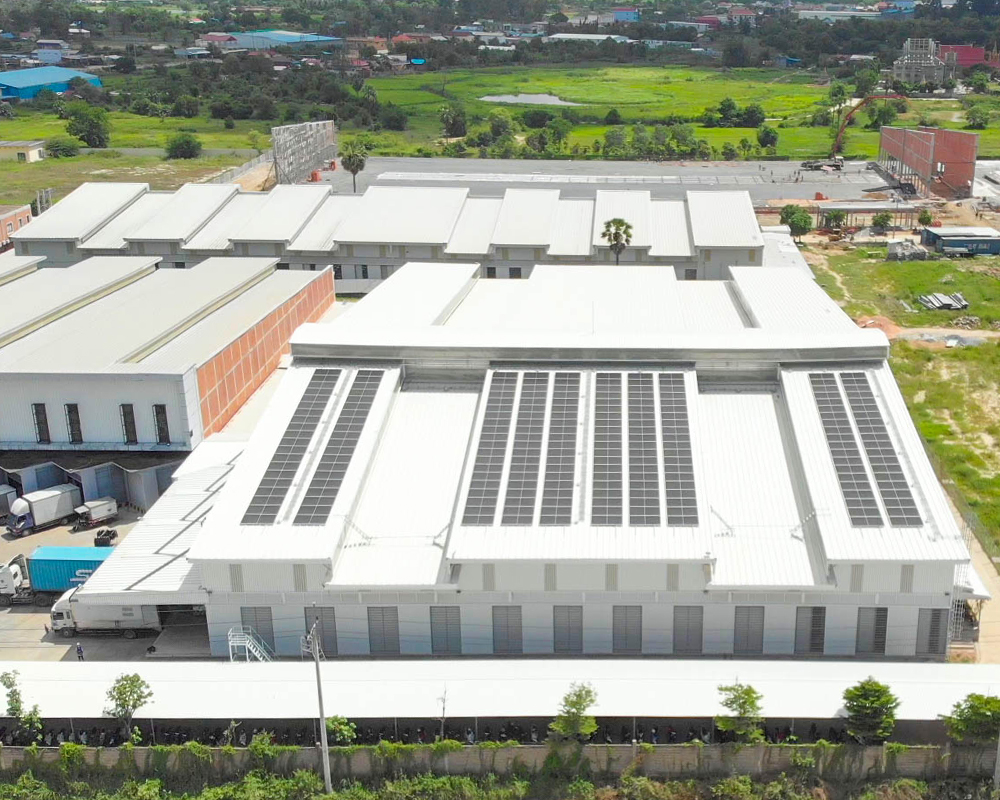
Microgrid Legislation Aims to Lure Data Center Developers to West Virginia
[ad_1]

West Virginia is gearing up to capture a big part of the booming data center market with new legislation that would allow developers to create independent microgrids to power their data centers.
The Power Generation and Consumption Act, which is now awaiting Gov. Patrick Morrisey’s signature to become law, would establish a certified microgrid development program, including requirements for certification, service, customer eligibility and special contracts. It would establish a high-impact data center program, including provisions for notification, certification and recordkeeping.
An electric grid stabilization and security fund would also be created under the bill to collect tax revenue from the projects. Morrisey, who proposed the legislation, has indicated that he will sign it.
Data centers are “knocking on West Virginia’s door,” Morrisey said last month. However, current state code allows for only two microgrids statewide, and they are required to be powered by renewable energy, he said. “That’s going to change,” he added.
The legislation, which allows for any kind of energy source including coal and gas, will make it easier for data center development in the state, he said.
Matt Armstrong, vice president of Government Affairs & Public Policy at Baker Hughes, which develops microgrid systems for various sectors including airports, tells ENR that his company did not work on the legislation, but welcomes it. “We are encouraged by legislation easing the development of these critical infrastructure projects in the U.S.,” he said.
Microgrids are growing dramatically nationwide and are being deployed in many applications from military bases, which was one of their original uses, to healthcare, multifamily housing and government offices, says Geoff Oxnam, CEO of American Microgrid Solutions, a consulting and development firm. It is partnering in California with Collective Energy Co. to design, fund and install San Fernando Community Health Center’s 106-kW solar installation, which will integrate a battery system. Project completion is slated for late this year.
U.S. electricity prices are expected to rise more significantly than they have in the past as demand skyrockets, Oxnam tells ENR. Data centers are totally dependent on electricity and they are in the process of a major growth phase, he says. “The microgrid option for [data centers] is going to be an important one in how they manage that growth, and it will be important for utilities too as they try to figure out how to meet this growing demand.”
Bill Pushback
West Virginia bill proponents argue that the state needs to capitalize on that development—especially as demand soars for cloud computing, artificial intelligence and data storage—by enticing companies to build there. But critics argue that the way the bill is written may hurt West Virginians, such as provisions that prohibit local jurisdictions from regulating microgrid districts and data centers in their own regions. Some also argue that the legislation will raise costs on communities and may be at odds with the state’s constitution.
Kelly Allen, executive director of the independent nonprofit policy research organization West Virginia Center on Budget and Policy, says her group has concerns with preempting local control or removing the voice of the communities that will be directly affected by the development. Also, she adds, counties and municipalities lose out because the bill diverts about 70% of property tax revenue away from them and into the state fund. The local jurisdictions are the ones that will bear the cost of the new development, which includes costs for infrastructure or services such as fire and police response, she says.
“The cost of all the things that local governments pay for will go way up, but they will not necessarily see that increased investment,” Allen says.
In a statement to ENR, Appalachian Power said the legislation presents significant challenges, especially as it “diminishes the opportunity for Appalachian Power to grow through the increasing demand for data centers and other customers located in the microgrid district. These types of customers provide a key opportunity to spread fixed costs over a greater number of customers, which could mitigate the impacts of future rate requests.”
The utility added that certain provisions of the legislation that are unrelated to microgrids will lead to rate increases in the millions of dollars for customers.
“One of the most concerning outcomes is increased cost associated with the provision related to coal procurement and plant operations,” Appalachian Power said. “Furthermore, the bill proposes changes to the Integrated Resource Plan (IRP) filings, which could result in more costly outcomes for our customers.”
Appalachian Power said its goal is to ensure that it continues to deliver safe, affordable and reliable electricity “to all West Virginia customers without compromising the financial stability of our state or the future of our energy mix.” The utility added that it is committed to working with the governor, state legislators and other stakeholders to find solutions that will not raise rates for customers.
[ad_2]
Source link
Post a Comment
You must be logged in to post a comment.






